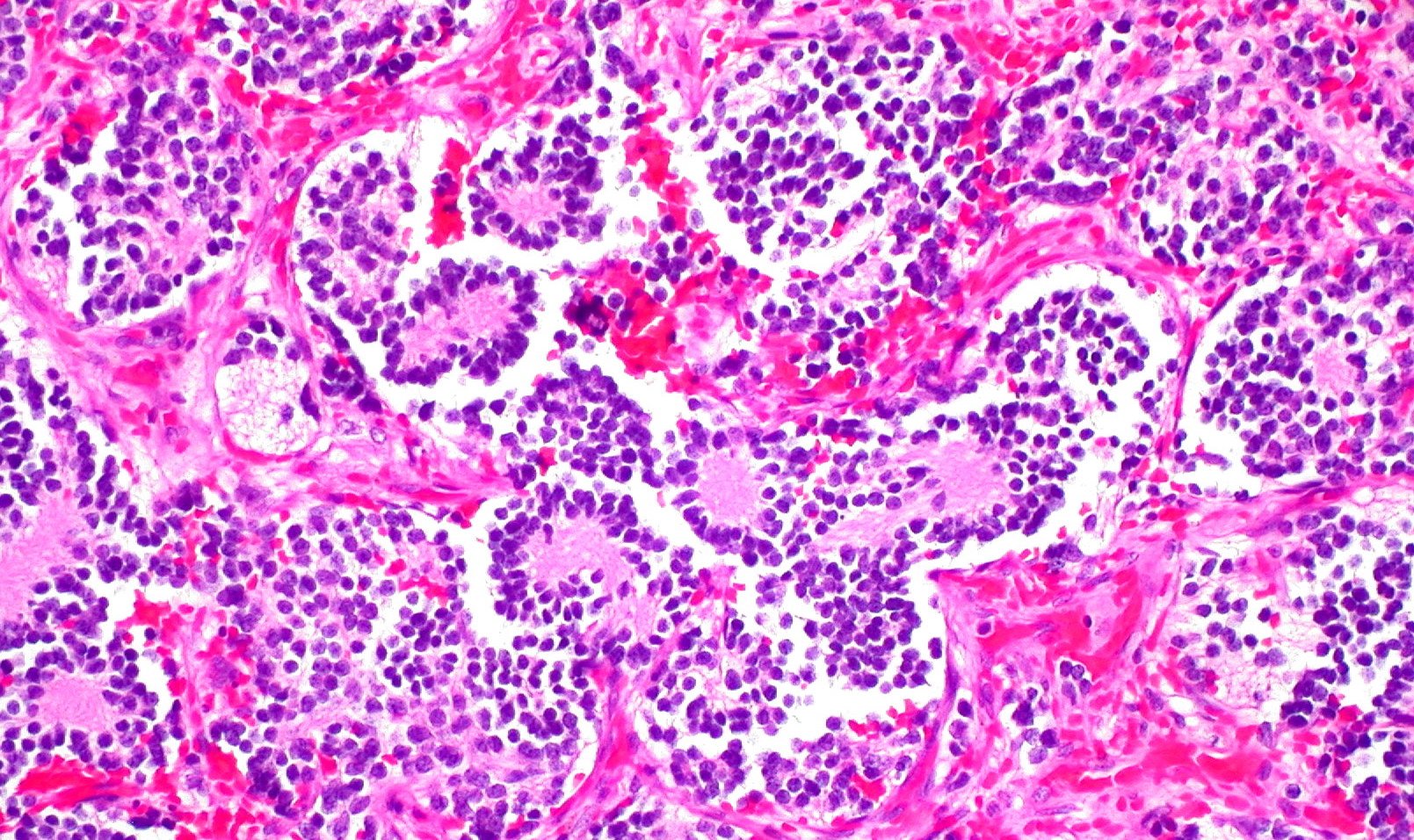
Neuroblastoma of the Adrenal Gland. Image credit: Ed Uthman. CC BY-NC 2.0
Children with a high-risk, deadly form of neuroblastoma will benefit from a treatment regime that improves survival and reduces side-effects, following the publication of a major European trial.
Researchers from nearly 130 centres in 18 different countries have announced initial results from the largest-ever trial in children with high-risk neuroblastoma, which is one of the biggest killers of all childhood cancers.
The results, published in The Lancet Oncology, show that one chemotherapy regime is better than another in treating neuroblastomas that are either particularly aggressive, because of genetic mutations, or have returned after initial treatment.
The trial analysis was a major collaborative research effort across Europe led by the SIOPEN group of neuroblastoma researchers, which included Professor Andrew Pearson, who devised the trial – and who until his retirement was Professor of Paediatric Oncology at The Institute of Cancer Research, London, and Consultant at The Royal Marsden NHS Foundation Trust.
More effective option
Researchers found that the combination of chemotherapy drugs busulfan and melphalan – both discovered at the ICR – was more effective than a three-drug combination of carboplatin, etoposide and melphalan, alongside other standard forms of treatment.
In the trial, some 296 children received the two-drug and 302 the three-drug combination.
Three years after starting treatment, 38% of the children in the three-drug group, did not experience a progression in their disease, a secondary cancer, or death from any cause. This improved to 50% in the children taking busulfan and melphalan.
There were also fewer severe, life-threatening side-effects in the two-drug than the three-drug group – occurring in 4% and 10% of children, respectively.
Supporting our Childhood Cancer appeal will help us develop new treatments for children with aggressive and hard to treat cancers.
Find out more
A major challenge
The trial has been a major challenge for researchers, because although neuroblastoma is a relatively common childhood cancer it is still rare. It has been made possible by collaboration across Europe which continues as the SIOPEN group investigates other emerging treatments.
Study co-author Professor Andrew Pearson, former Professor of Paediatric Oncology at the ICR, and Consultant at The Royal Marsden, said:
“Our trial has clearly shown that busulfan and melphalan is more effective than carboplatin, etoposide and melphalan for the treatment of children with high-risk neuroblastoma, both in terms of eradicating the cancer and having fewer serious side-effects. The two-drug combination has become the new gold-standard treatment for these patients in Europe.
“This practice-changing clinical trial has only been possible because a huge and co-ordinated effort across Europe, led by researchers, clinicians and families who are determined to find more effective treatments for children with neuroblastoma.”